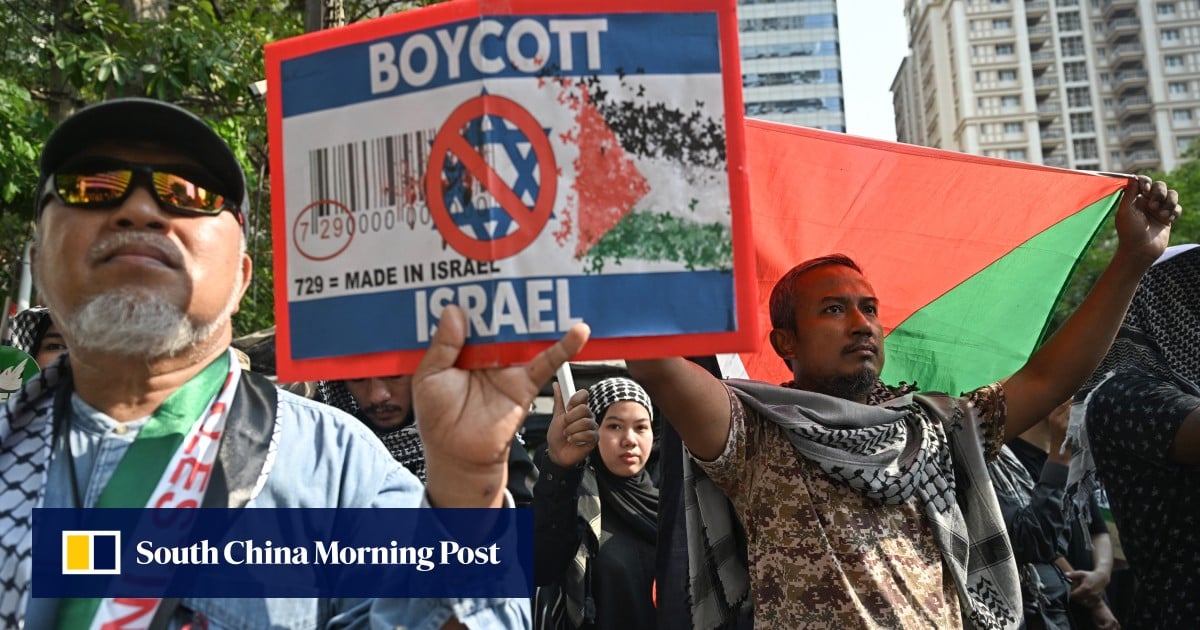

As the one-year anniversary of the October 7 conflict approaches, significant responses have emerged from Southeast Asia, particularly in Malaysia, Indonesia, Thailand, and Singapore. The anniversary has sparked public demonstrations and calls for action, reflecting the region's strong sentiments regarding the ongoing violence in Gaza, where over 40,000 Palestinians have died, mostly civilians, according to UN figures [c7108228].
In Malaysia, Prime Minister Anwar Ibrahim has been vocal in his support for Palestine, condemning Western positions and advocating for boycotts of US-linked brands. His government has actively engaged in discussions about the humanitarian crisis in Gaza, emphasizing the need for international awareness and action [c7108228].
Indonesia's Islamic leaders have also urged continuous boycotts, leading to significant financial impacts, such as KFC Indonesia reporting a net loss of US$21.5 million due to the backlash against perceived support for Israel. This reflects a growing trend of economic activism in response to the conflict [c7108228].
Despite public demonstrations being banned in Singapore, activism persists. A petition against the arms trade with Israel has garnered nearly 2,000 signatures, showcasing the public's desire to voice their opposition to the conflict [c7108228].
The conflict's impact extends deeply into the Palestinian diaspora in Southeast Asia. Students like Raed Arada have expressed anguish over their families' safety, highlighting the personal toll of the ongoing violence [c7108228]. In Malaysia, graphic designer Arif Rafhan Othman has created art to raise awareness, merging traditional designs with Palestinian symbols, further illustrating the cultural response to the crisis [c7108228].
As the anniversary of the October 7 attack approaches, the international community faces increasing pressure to address the humanitarian crisis in Gaza and promote lasting peace in the region. Activists across Southeast Asia are urging immediate action to recognize the rights and dignity of all affected populations, reflecting a broader global movement advocating for Palestinian rights [0f9ff908].